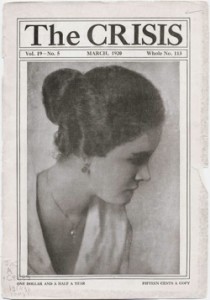Georgia Blanche Douglas was born September 10, 1880 in Marietta, Georgia. Her father was a wealthy Englishman of whom she knew very little. She attended Atlanta University, Oberlin Conservatory of Music, Cleveland College of Music, and Howard University. After returning from Ohio, she worked as an assistant principal in Atlanta. In the late 1890’s she studied music at Oberlin in Ohio. She was married in 1903 to Henry Lincoln Johnson, an Atlanta attorney and politician.In 1910 the couple moved to Washington, DC where they had two sons.
There, her home, which she called the Half-Way House, was the site of a weekly gathering known as the “S Street Salon” where many prominent writers of the Harlem Renaissance introduced new works. These writers included Mary P. Burrill, Countee Cullen, Jean Toomer, and Langston Hughes, as well as Angelina Weld Grimke. In addition to her creative writing, during the 1920s Johnson was also active as a public speaker and a journalist and participated in civil rights activities.
Widowed in 1925, Johnson worked for federal government, eventually securing a position as a commissioner with the Department of Labor, from which she was dismissed during the 1930’s.
In the period between 1918 and 1930 she published some two hundred poems and published such books of poetry as The Heart of a Woman, Bronze, An Autumn Love Cycle, and Share My World. Georgia Douglas Johnson was one of the first African American female poets to gain prominence and is considered one of the finest writers of her time.
In addition to poetry, Georgia Douglas Johnson was a prolific playwright. She worked with both the Krigwa Players and the Federal Theatre Project. Although she submitted at least five plays to the FTP, none of them were produced. Unfortunately, of the close to 30 plays Johnson was known to have written, only five were ever published and three produced.
In 1965 the poet and playwright accepted an honorary doctorate in literature from Atlanta University. At the time of her death the following year, Johnson left a number of nearly completed manuscripts: The Torch, a collection of works by various authors; The Life and Times of Henry Lincoln Johnson, about the author’s husband; Rainbow Silhouettes , a collection of Johnson’s short stories, and a catalogue of twenty-eight plays.
Only a portion of her writing has been preserved. Tragically, on the day of her funeral, her writings –including manuscripts and correspondence– were thrown away.
